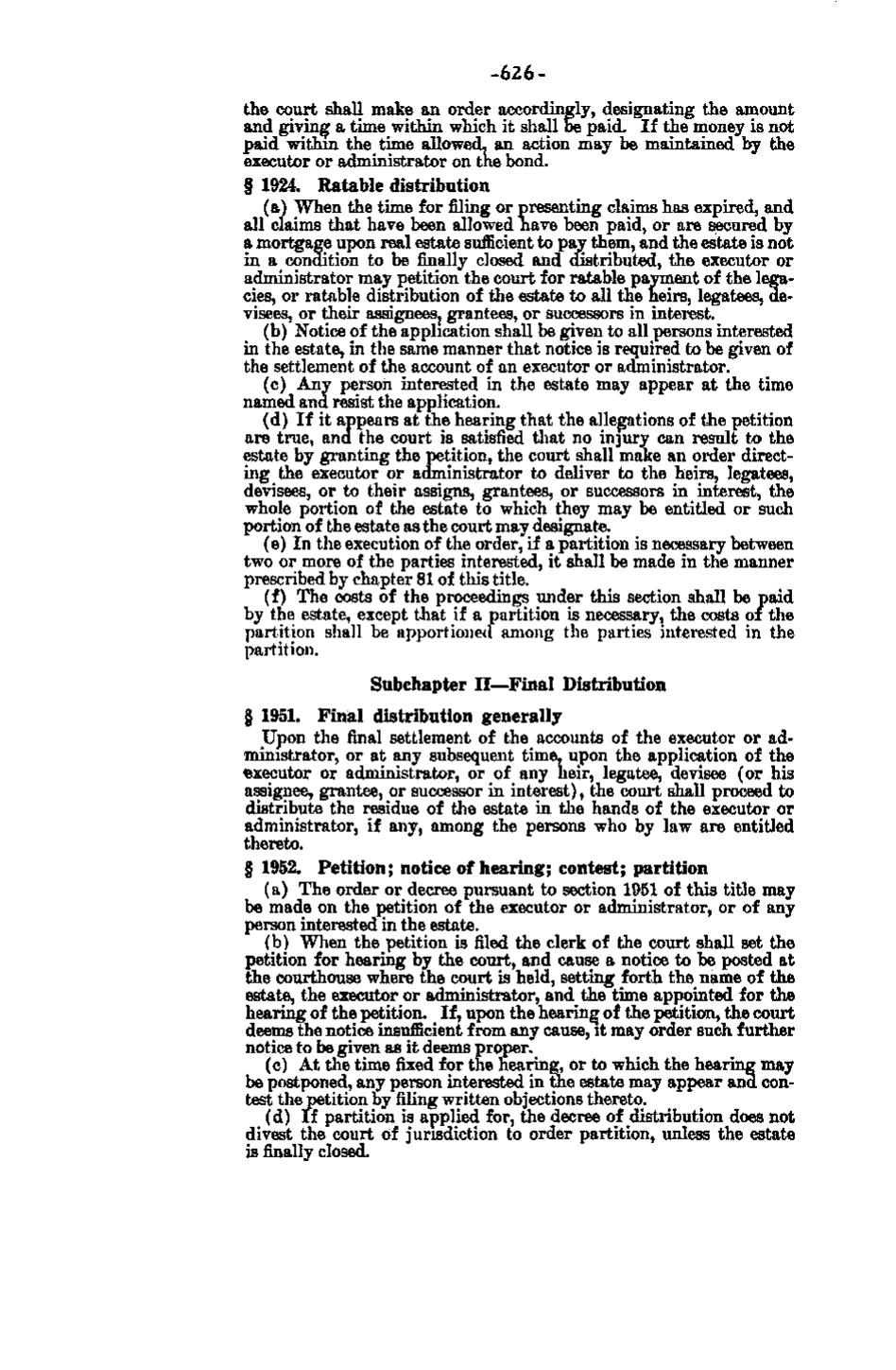–626–
-626the court shall make an order accordingly, designating the amount and giving a time within which it shall be paid. If the money is not paid withm the time allowed, an action may be maintained by the executor or administrator on the bond. § 1924. Ratable distribution (a) When the time for filing or presenting claims has expired, and all claims that have been allowed have been paid, or are secured by a mortgage upon real estate sufficient to pay them, and the estate is not in a condition to be finally closed and distributed, the executor or administrator may petition the court for ratable payment of the legacies, or ratable distribution of the estate to all the heirs, legatees, devisees, or their assignees, grantees, or successors in interest. (b) Notice of the application shall be given to all persons interested in the estate, in the same manner that notice is required to be given of the settlement of the account of an executor or administrator. (c) Any person interested in the estate may appear at the time named and resist the application. (d) If it appears at the hearing that the allegations of the petition are true, and the court is satisfied that no injury can result to the estate by granting the petition, the court shall make an order directing the executor or administrator to deliver to the heirs, legatees, devisees, or to their assigns, grantees, or successors in interest, the whole portion of the estate to which they may be entitled or such portion of the estate as the court may designate. (e) In the execution of the order, if a partition is necessary between two or more of the parties interested, it shall be made in the manner prescribed by chapter 81 of this title. (f) The costs of the proceedings under this section shall be paid by the estate, except that if a partition is necessary, the costs of the partition shall be apportioiied among the parties interested in the partition. Subchapter II—Final Distribution § 1951. Final distribution generally Upon the final settlement of the accounts of the executor or administrator, or at any subsequent time, upon the application of the executor or administrator, or of any heir, legatee, devisee (or his assignee, grantee, or successor in interest), the court shall proceed to distribute the residue of the estate in the hands of the executor or administrator, if any, among the persons who by law are entitled thereto. § 1952. Petition; notice of hearing; contest; partition (a) The order or decree pursuant to section 1951 of this title may be made on the petition of the executor or administrator, or of any person interested in the estate. (b) When the petition is filed the clerk of the court shall set the petition for hearing by the court, and cause a notice to be posted at the courthouse where the court is held, setting forth the name of the estate, the executor or administrator, and the time appointed for the hearing of the petition. If, upon the hearing of the petition, the court deems the notice insufficient from any cause, it may order such further notice to be given as it deems proper. (c) At the time fixed for the hearing, or to which the hearing may be postponed, any person interested in the estate may appear and contest the petition by filing written objections thereto. (d) If partition is applied for, the decree of distribution does not divest the court of jurisdiction to order partition, unless the estate is finally closed.
�
